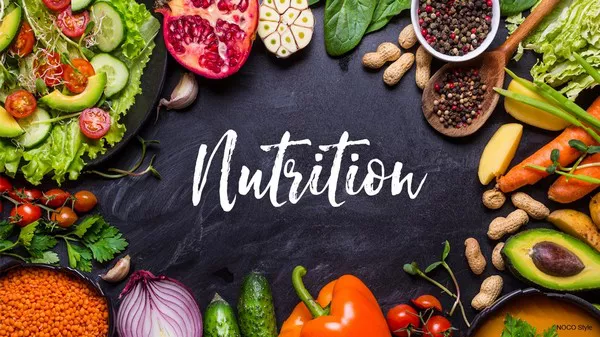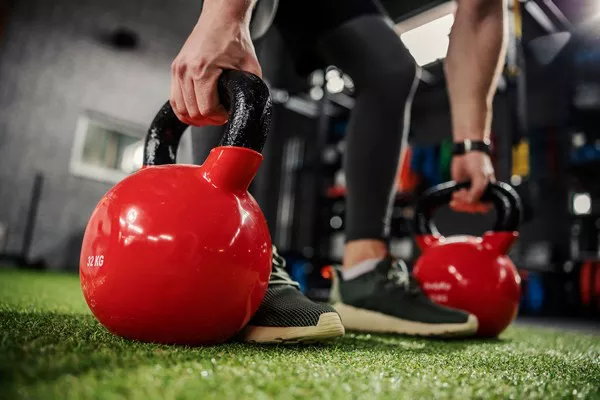Picture this: You’ve just completed an intense cardio workout at your local gym. After a refreshing shower, you head to the gym’s smoothie bar for the perfect recovery smoothie, tailor-made for you. Your unique workout data is seamlessly integrated into your diet plan through the magic of artificial intelligence (AI) and machine learning. It generates the ideal combination of ingredients for your recovery smoothie, optimizing your goals for weight loss and muscle recovery. This intelligent system can also take into account your sleep patterns, insulin levels, and stress levels, constantly fine-tuning your diet and suggesting the perfect mix of foods to enhance your overall health and quality of life. Does this scenario sound like something out of a sci-fi show, alongside flying cars and teleportation?
Believe it or not, this is what Deliveroo’s “Snack to the Future: 2040” Report, unveiled in early July, envisions for food consumption in 2040. According to the report, the global personalized nutrition market is currently valued at £14.5 billion in 2023 and is projected to surge to £66 billion by 2040. Achieving this transformation will require substantial innovation in personalized nutrition solutions, and the report introduces the term “me-ganism” to describe this emerging trend.
For some, this AI-driven vision is an appealing one. If you’re tired of the mental effort that goes into menu planning, grocery shopping, and meal preparation, handing over these responsibilities to artificial intelligence may feel like a welcome relief. Yet, for others, the idea of AI infiltrating our minds and dictating our dietary choices may evoke a nightmare scenario. Regardless of one’s perspective, we are rapidly approaching a reality where AI’s role in shaping our diets is becoming more pronounced.
Today, AI, including ChatGPT, can serve as a chatbot to guide individuals in creating diets based on specific parameters and even break down those diets into ingredients available for online ordering. Machine learning is already being utilized in online grocery shopping, using predictive models to anticipate your food preferences based on your past choices.
When it comes to physical evaluations, technology already exists to monitor insulin levels before and after meals to determine appropriate dietary choices. Some companies offer microbiome analysis based on collected feces to create bespoke diet plans (although their effectiveness is debated). There are even innovative technologies such as the U-Scan personal toilet insert, which analyzes urine to provide various health metrics. The potential for interconnected technology in this field is limitless and awe-inspiring, and it may not be as distant a future as one might think. Breakthroughs in this technology may be just a few inventive minds away, and whether it instills fear or excitement, it’s a unique era in which to live.
However, before we fully embrace the idea of AI taking over our meal planning, we must acknowledge significant gaps between the current state of technology and what needs improvement before AI can become the primary driver of our dietary choices.
First and foremost, as a species, our understanding of nutrition and its potential to impact, heal, and optimize our bodies remains limited. Humans have been consuming food for eons, yet we have missed countless opportunities to accumulate knowledge. Many modern doctors in developed countries receive minimal training in using food as preventive medicine, leaving the average consumer to rely on industry marketing for dietary guidance.
Consequently, we are still in the process of learning about nutrition and its diverse effects on individuals. To advance, we need more research and experimentation. However, there is a critical issue within the scientific community: funding for nutrition research is often limited to projects with significant financial backing. This bias can result in conflicting results, particularly when different studies are sponsored by parties with vested interests in the outcomes. Therefore, more funding and objective nutrition studies are essential to bridge this knowledge gap.
Another factor to consider is that our bodies respond differently to diets, and there is no one-size-fits-all approach. While the concept of “me-ganism” is intriguing, focusing solely on insulin levels overlooks other biological complexities. For instance, how does AI determine the ideal diet for someone with diabetes and a high risk of kidney stones, when different dietary recommendations may apply in various situations?
Currently, AI primarily relies on input-based learning, analyzing past decisions to make recommendations. While this retrospective analysis can be enlightening and motivate some individuals to change their habits, it ultimately reflects past choices rather than predicting future decision-making. This is a highly complex realm to navigate. However, a new AI approach called “inverse optimization,” developed at Johns Hopkins University, looks at your current decisions as inputs and determines the desired outcome. For example, if your diet is high in salt, inverse optimization may assess your current diet and suggest ways to reduce salt intake.
However, a significant challenge remains: while machine learning can offer suggestions, it cannot force us to adhere to them. We retain the power of personal choice, allowing us to enjoy a piece of cheesecake when we crave it, even if our “me-nu” suggests a salad, or to skip dinner when we know we should eat. AI can provide suggestions, but it’s ultimately our responsibility to follow through. Collecting data from our bodies is valuable, but without the willpower and motivation to act on it, this information remains interesting but unutilized.
In conclusion, AI-driven diets represent a well-intentioned effort to simplify a complex process and promote healthier living. It will be intriguing to observe how the future of food unfolds. However, AI-driven diets and related technologies are part of the solution, not the cure. No matter how advanced or futuristic the technology may become, it cannot override our fundamental right to choose and the luxury of changing our minds.

































